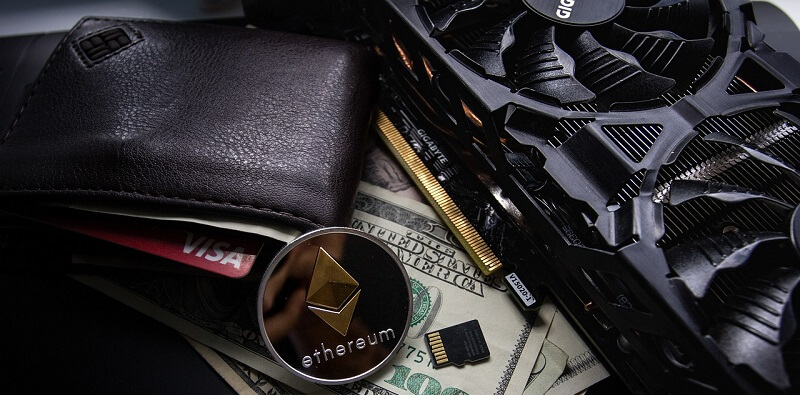The world of cryptocurrencies continues to evolve, and with it comes the concept of wrapped tokens. One particular token, wrapped ether (wETH), has gained significant attention and traction within the blockchain community. In this article, we will explore the intricacies of wETH, its purpose, the process of wrapping ETH, how it can be utilized, and its importance in expanding the decentralized finance (DeFi) ecosystem.
Definition of wrapped ether (wETH)
Wrapped ether (wETH) can be described as a tokenized version of the ether (ETH) cryptocurrency. Just like stablecoins that are pegged to the value of a specific currency, wETH serves a similar purpose by tokenizing ETH to enable compatibility and interoperability across different blockchains.
Purpose of Wrapped Tokens
Native coins from one blockchain cannot be used on any other blockchain, leading to limited functionality and hindered cross-chain transactions. However, wrapped tokens like wETH were specifically designed to overcome this challenge and enhance interoperability. By tokenizing ETH, it becomes compatible with the widely adopted ERC-20 standard commonly used for tokens built on the Ethereum network.
Compatibility with the ERC-20 standard
Ether itself does not comply with the ERC-20 standard, as the standard was created after the launch of ETH in 2015. By wrapping ETH, it becomes compatible with the ERC-20 standard, opening up a world of possibilities for its use within the Ethereum ecosystem. The process of wrapping ETH involves tokenizing it to conform to the ERC-20 standard. This allows ETH to be easily used in a variety of applications and decentralized finance protocols on the Ethereum network.
The process of converting ETH into wETH
To wrap ETH into interoperable wETH tokens, users need to deposit their ETH from their digital wallet into a specially designed smart contract. This smart contract will handle the conversion process and initiate the creation of an equivalent amount of wETH. Once the ETH is deposited into the smart contract, an equivalent amount of wETH is generated. This ensures that the value and ownership of the original ETH is maintained while creating a compatible token that can be freely used within the Ethereum ecosystem. After the conversion process is complete, the generated wETH is sent back to the user’s Ethereum address, ready to be utilized in various decentralized applications and DeFi protocols.
Utilizing wETH
One of the key benefits of wrapping ETH into wETH is the ability to provide liquidity to decentralized exchanges. Users can contribute their wETH to liquidity pools, allowing others to trade and swap tokens seamlessly while earning fees and rewards. Wrapped Ether (wETH) can also serve as collateral for various DeFi lending platforms. Users can leverage their wETH holdings to borrow stablecoins or other tokens, enabling access to additional liquidity and potential investment opportunities.
Engaging in yield farming through DeFi apps
Yield farming, a popular practice in the DeFi space, involves leveraging different protocols and strategies to maximize returns on investments. Wrapped ether tokens, such as wETH, can be used for yield farming, enabling users to earn additional tokens or rewards by participating in liquidity pools, staking, or other yield-generating activities.
Swapping ETH on a cryptocurrency exchange
Another option is to swap ETH for wETH on a cryptocurrency exchange that supports this particular trading pair. This allows for a convenient and straightforward process of obtaining wETH while bypassing the need for interaction with a smart contract. Wrapped tokens, including wETH, have gained significant popularity within the blockchain community. Various projects and platforms have embraced wrapped tokens as a means to enhance interoperability, liquidity, and use cases for different cryptocurrencies.
The Importance of Wrapped Tokens in Expanding the DeFi Ecosystem
As the DeFi ecosystem continues to expand, wrapped tokens like wETH play a crucial role in providing liquidity and enabling seamless interactions within different protocols. They bridge the gap between blockchains and empower users to participate in diverse DeFi activities with their existing token holdings. Wrapped tokens contribute to the overall liquidity of the DeFi ecosystem. They enable users to easily convert and utilize their tokens across different protocols, paving the way for more efficient and integrated DeFi experiences.
Wrapped Ether (wETH) tokens have emerged as a vital tool for enhancing interoperability, liquidity, and possibilities within the world of decentralized finance. By tokenizing Ether and making it compatible with the ERC-20 standard, wETH enables users to provide liquidity, engage in lending and borrowing activities, and participate in exciting yield farming opportunities. As the DeFi ecosystem continues to evolve, wrapped tokens will undoubtedly play a significant role in shaping the future of finance on the blockchain.

